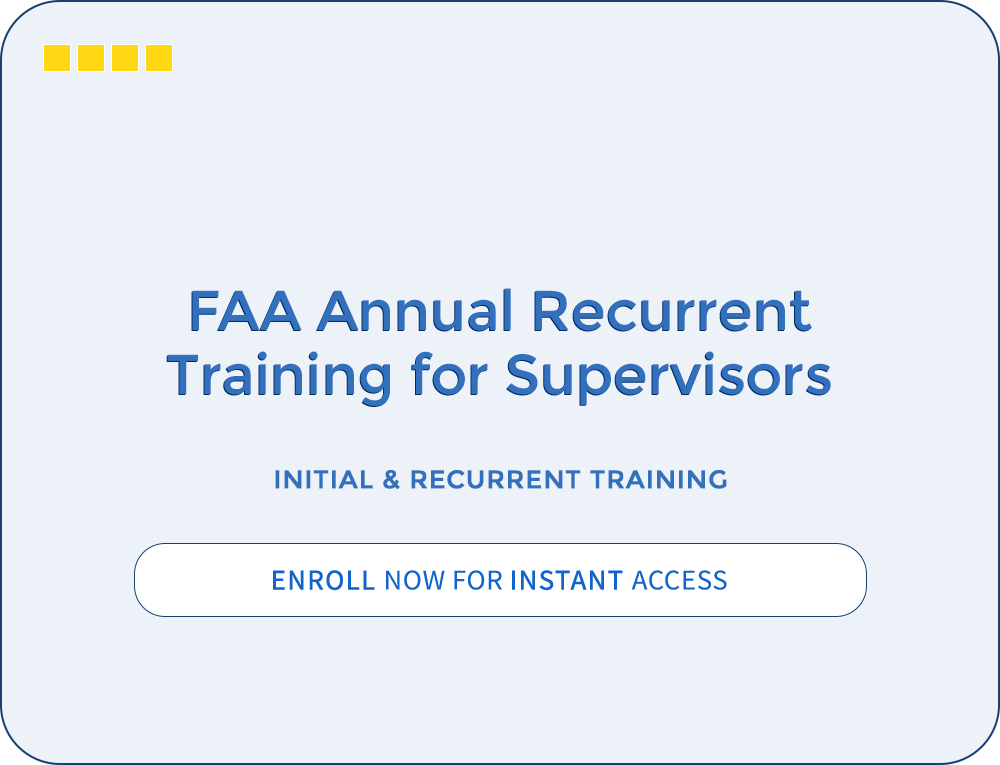Reasonable Suspicion Training for Supervisors
WorkTraining.com is the nationwide leader in both DOT and non-DOT Reasonable Suspicion Training. We provide DOT training for FMCSA, FRA, FAA, PHMSA, USCG, & FTA, and non-DOT training for non-regulated employers. Our courses help supervisors recognize substance use signs, mitigate risks and lawsuits, and ensure compliance with state and federal laws.
Popular Courses
DOT Reasonable Suspicion Training for Supervisors
$60.00
Non-DOT Reasonable Suspicion Training for Supervisors
$55.00
FAA Reasonable Suspicion Training for Supervisors
$60.00
Entrenamiento sobre sospecha razonable del DOT para supervisores (Spanish)
$55.00
Iowa Reasonable Suspicion Training for Supervisors (Initial)
$55.00
Iowa Reasonable Suspicion Training for Supervisor (Refresher/Annual)
$55.00
FRA Reasonable Suspicion & Toxicological Testing Training
$75.00
FAA Annual Recurrent Training for Supervisors
$55.00
- Attorney created content.
- Uphold industry regulations.
- Enhances workplace safety.
- Boost work productivity.
- Reduce liability and risks.
- Deter substance misuse.
- Promote a respectful culture.
- SCORM courseware is available.
- Comply with 14 CFR Part 120.
- FAA-specific training.
- Uphold aviation safety.
- Ensure yearly training.
- Handling situations professionally.
- Annual recurrent training.
- Comly with 49 CFR Part 382.
- Enhance motor carrier safety.
- Meet clearinghouse rules.
- Foster a Drug-Free Workplace.
- Embrace FRA regulations.
- Understand 49 CFR Part 219.
- Promote railroad safety.
- Post-accident testing criteria.
- Enforce a drug-free workplace.
- Explore 49 CFR Part 199.
- Meet PHMSA regulations.
- Bolster safety standards.
- Maintain a drug-free workplace.
- Comply with FTA regulations.
- Learn more about 49 CFR Part 655.
- Contribute to public safety.
- Avoid preventable accidents.
Popular Bundles
Non-DOT Specimen Collector Bundle
save 10% $2,770.00 $2,500.00
DOT Specimen Collector Bundle
save 8% $3,220.00 $2,950.00
Train-the-Trainer Bundle for Drug Testing
save 52% $11,500.00 $5,500.00










